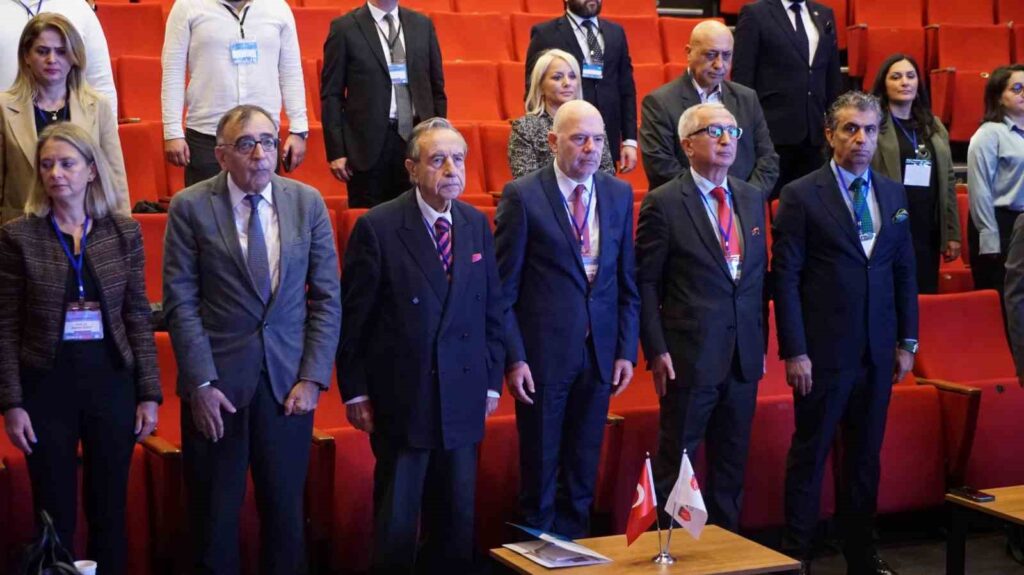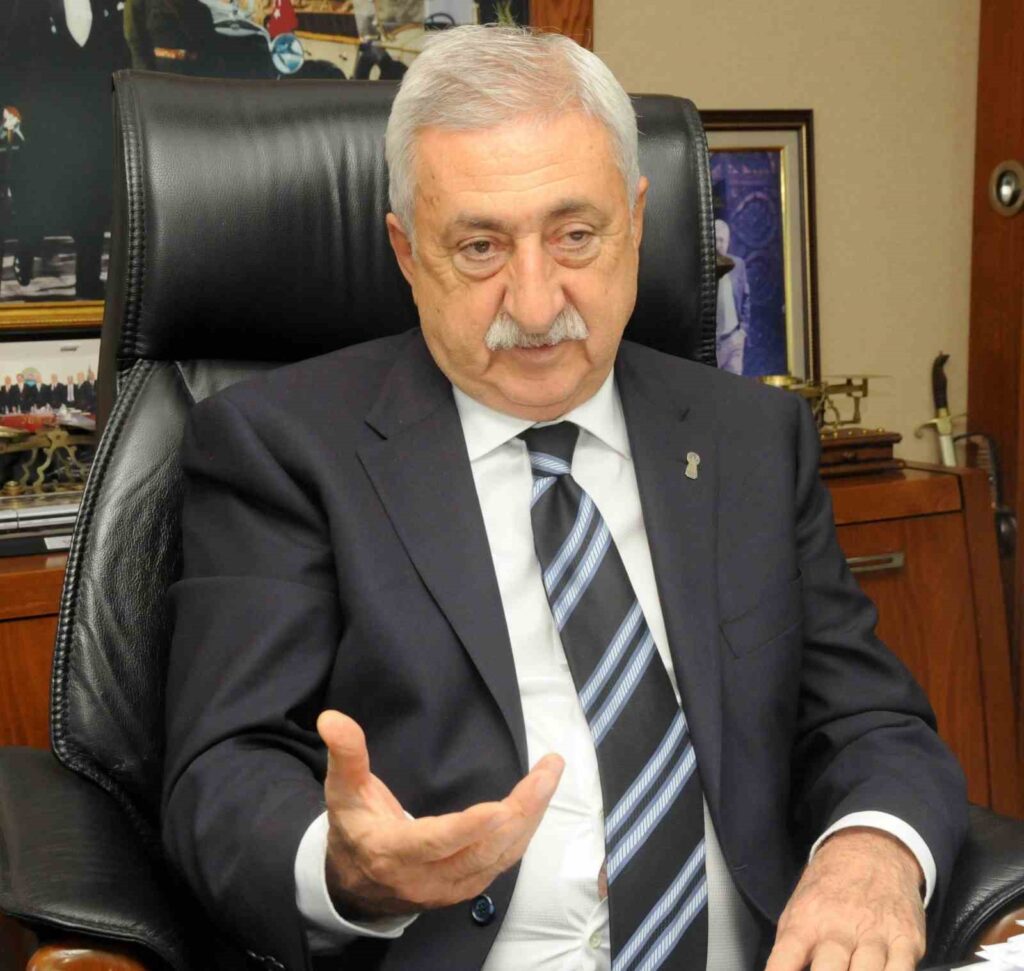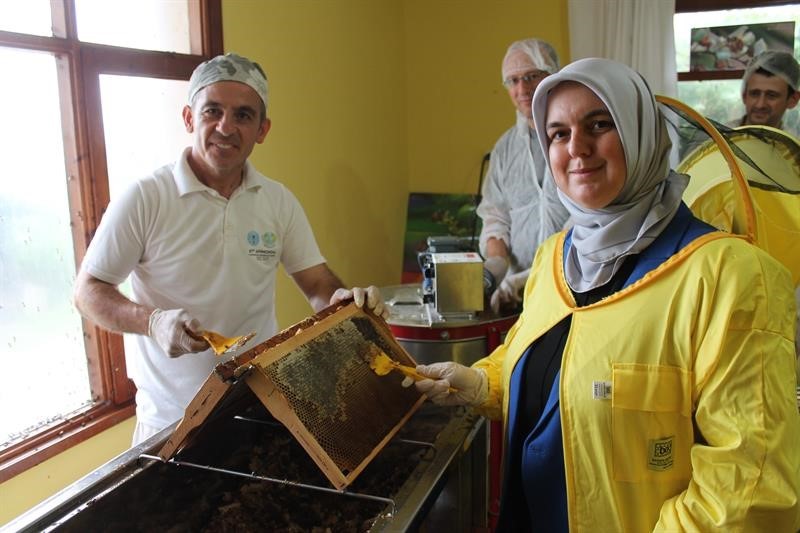Producers from Tunceli are complaining about adulterated honey.
Beekeepers in the high plateaus of Tunceli, who produce organic honey obtained from a thousand and one flowers without any additives, are complaining about the adulterated (additive) honey in the market. While producers are calling for increased inspections, they also urge consumers to …

Beekeepers in the high plateaus of Tunceli, who produce organic honey obtained from a thousand flowers and contain no additives, are complaining about adulterated (added) honeys in the market. While producers request an increase in inspections, they also warn consumers to stay away from honey with harmful additives.
Kazım Doğan, the President of the Tunceli Province Beekeepers Association, stated that they are conducting joint research with Hacettepe University on the honeys produced by the association. He noted that through this 2-3 year study, they are trying to reveal the characteristics and content of the region’s honey and have initiated a geographical marking study. Doğan said, ‘Geographical indication may exist in many provinces of Turkey, but we have demonstrated that difference. Our honey has been certified with a value that is much different from honeys that have received geographical indication. This is very important for us. In other words, we have revealed the values that a honey must carry to be called Munzur honey through content analyses. There are about a thousand beekeepers in Tunceli who produce approximately 600 tons of honey annually with 90 thousand hives. The last two seasons have been bad for beekeepers across the country. Beekeepers are not receiving the fruits of their labor. We also share some of the blame. For instance, it is a flaw that we constantly change bee breeds ourselves, and global climate change is evident. When global climate change meets our mistakes, it results in inefficiency in our labor.’
‘Beekeepers are treated like stepchildren’
Doğan emphasized that there should be a balance between beekeeping and livestock activities, stating, ‘In the planning we do with the Ministry, beekeepers are somewhat treated like stepchildren. While it is impossible for Turkey to compete in livestock under the current conditions, it is in a position to be the second largest country in the world in beekeeping. In the last two years, the Ministry has made new regulations. For example, punctuation marks will be made with the demands of the Beekeepers’ Union. This means that the distance between two apiaries, as well as the diversity of flora, will be ensured for the bees to be placed more accurately. Again, as stated in the pasture law, pastures need to be rested. For example, if a pasture or plateau is rested, and a beekeeper goes there, both the bees will yield tremendous productivity, and it will contribute to the regeneration of nature. For us, the proper implementation of the pasture law is actually sufficient.’
‘If a tradesman sells honey, there should be an analysis report’
Kazım Doğan, the President of the Tunceli Province Beekeepers Association, noted that adulterated honeys exist not only in Turkey but also in Tunceli. ‘The source of a product must be indicated. There is a labeling regulation in Turkey. If I put 2 kilograms of honey in a plastic box and sell it, it can be understood that this person is a beekeeper, but when you see it on a supermarket shelf, you need to make an effort to understand it. Our honeys have a business number indicating who the product belongs to. Eating comb honey is a culture in Anatolia, but at least there should be a business number on it. This should also be transitioned into a form that provides trust to consumers. In our work with our beekeepers this year, we saw filled comb honey when there was none, and filled black hive honey when there was none. The existence of such adulterated products is bad. Honeys with high sucrose content are presented to consumers as if they are our honey. If a tradesman sells honey, there should also be an analysis report. In our province and in Turkey, the beekeepers’ union is the guarantor of this business. We are responsible for delivering healthy honey to you. Please buy your honey from a producer that has been analyzed or one you know. Real honey can crystallize. It is more appropriate for honey to stay in a suitable closed shelf, and even if it crystallizes, it should be consumed, or rather than people buying a lot of honey at once, they should buy it as they consume.’
Producers are complaining about not receiving the fruits of their labor
Beekeepers, who explained that they cannot receive the fruits of their labor due to adulterated honeys, stated that inspections need to be increased. Murat Ateş, President of the Hemgen Honey Cooperative operating in Pülümür, expressed that many families in the district earn their livelihood through beekeeping, saying, ‘90% to 95% of the beekeepers in our district produce very high-quality honey, but they do not receive the fruits of their labor. The main reason for this is the cheap honeys in the market. The Provincial Directorate of Agriculture and Forestry takes samples from us 4-5 times and conducts analyses. However, we see that there are honeys sold without labels or banderoles on the outside. We demand the inspection of these.’
Nurettin Özgürel, who has been beekeeping for 39 years, 18 of which have been organic, stated, ‘We are very saddened to see the so-called under-the-counter honeys in the market. We put in so much effort. I appeal to consumers; in every province, there are beekeepers’ unions, Provincial and District Directorates of Agriculture and Forestry. They inspect us. If you want to buy honey, reach out to these institutions; they will provide you with accurate information and ensure you buy honey from the right place. As a producer, I work hard for 11 months of the year. It is really very sad that consumers prefer these cheap under-the-counter honeys.’







